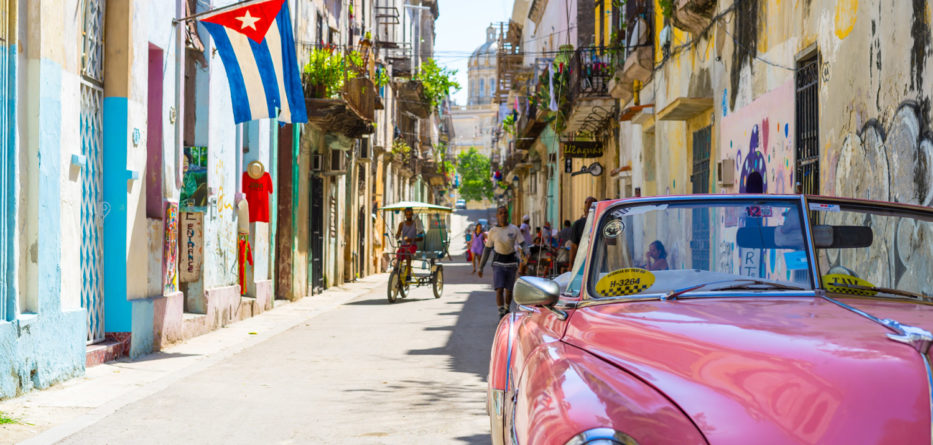Trinidad, Cuba – The US trade embargo and collapse of tour operator Thomas Cook have led to massive losses to Cuba, a country that is reliant on the tourism sector.
In 2019, both events meant Cuba had 500,000 fewer tourists reaching its shores.
To reverse the situation, the industry has set its sights on China, Russia and wealthy Cubans who can afford a good vacation.
“Our main market is the domestic market, that of Cuban tourism. It grew much more than 10 percent in 2019 and increases every year,” Reiner Rendón, delegate of the Ministry of Tourism in the province of Sancti Spiritus home to the colonial city of Trinidad.
With more than 1.4 million annual visits, according to the official, Trinidad is usually a must-see destination of anyone who travels to the Caribbean island hoping for more than just sun and sea.
Authorities have decided to boost tourism to this heritage jewel listed as a UNESCO World Heritage Site, and plan to increase the number of available rooms from 3,945 to 22,276 over the next decade.
The ambitious goal is still on the ministry’s agenda despite the fact Cuba has lost more than 8 percent of its yearly visitors, which fell from over 4.7 million in 2018 to 4.3 million in 2019, according to government estimates.
The tourism sector will continue to target foreign travelers but also wealthy Cubans from Havana, Santiago, Villa Clara or Camaguey.
“I have to tell you that a lot of national tourism is geared towards four and five-star hotels,” Rendón told EFE.
Years ago, it was unthinkable that in a country where the average salary is about $45 a month someone could stay in a room next to a German technician, French teacher or Spanish jurist.
But Cuba is changing.
A wave of new entrepreneurs and freelancers has become a key economic boost since ex-governor Raúl Castro softened the communist framework of the island state by opening a loophole to the private sector.
But domestic tourism alone cannot revive the key sector, so Cuba has turned to visitors from two political partner countries: China and Russia.
Russian tourism in Cuba has skyrocketed from 51,000 travelers in 2017 to 137,000 in 2018 and 178,000 in 2019.
As in previous years, Canada was in 2019 the exporter of tourists to the island, followed by the Cuban community abroad, the US, France, Germany, Mexico and Spain.
Last year the Trump administration linked Cuba with the Venezuelan regime of Nicolás Maduro and hardened the embargo, which has been active for six decades, with fresh sanctions.
Sanctions included a prohibition of travel by cruise ships, yachts and private airplanes and an embargo on access to internet search engines.
The move caused a drop of 5.2 percent in US arrivals to Cuba in the first nine months of 2019.
Later that year all regular flights from the US to Cuba, except for Havana, were axed.
By 2020 the same measure was rolled out to include charter flights and the volume of tourists from North American to the country is expected to continue to plummet.
The collapse of giant Thomas Cook in September, the main issuer of British tourists to Cuba, caused a massive number of canceled trips.
One of the ports most frequented by Thomas Cook cruises is Cienfuegos, a city declared a UNESCO World Cultural Heritage owing to its valuable colonial architecture and rich artistic heritage.
The emblematic Jagua hotel (managed by Meliá Hotels), founded in 1959, also known as the pearl of the south has taken a huge hit from the tourist dip.
While in January of last year 63 percent of its rooms were occupied, in early 2020 barely any customers can be seen by the bar or pool.
“This year, after the withdrawal of American operations and the bankruptcy of Thomas Cook, we have a 35 percent occupancy,” the hotel’s deputy director Liliana Guerra told EFE.
“A new projection towards the internal market” became necessary, she added.
For the first time in six decades, special Christmas offers were launched especially for Cubans, which have been extended to January and February.
“The national customer is a quiet customer, who comes to walk the city, the historic center,” she said. EFE






